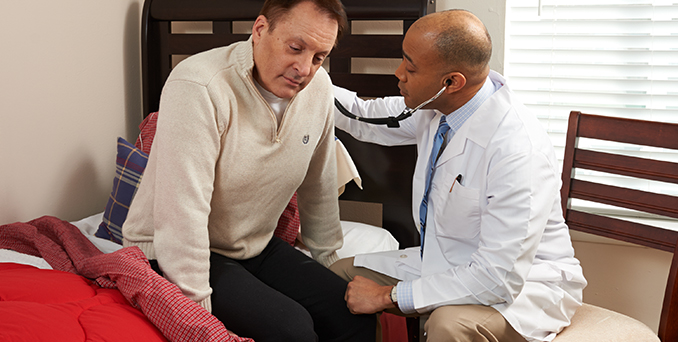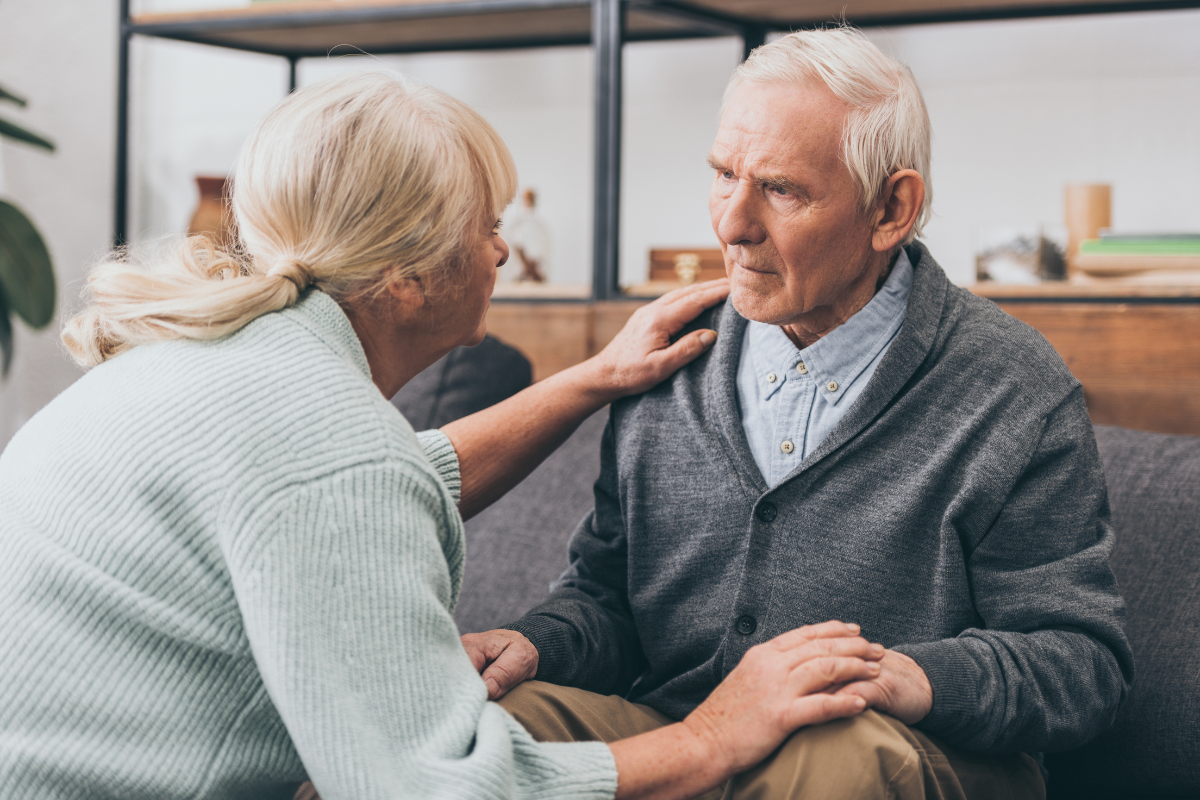Palliative Care: Bringing Back House Calls

When was the last time you had a doctor make a house call?
Although the practice of house calls is on the rise, for many patients with serious chronic illnesses, an appointment with the doctor means going to their office.
Palliative care is changing that, offering patients convenience and giving doctors additional insight into how their patient is faring at home.
A Tale of Two Patients
It's 6 a.m., and Mrs. Foster has a routine doctor's appointment in two hours. At age 80 and suffering from congestive heart failure, every trip outside the house is an ordeal.
First, she must get dressed. Her daughter will help her bathe and then pull on sweatpants and a sweater. Her son-in-law has taken the morning off from work. Once Mrs. Foster is bundled up and ready to go, he will lift her into her wheelchair. He and his wife will help to maneuver the chair down the three steps to the sidewalk before easing her into the car.
After the short drive to the doctor's office, she'll be eased back into the wheelchair to sit in the waiting room. Around her, the doctor's waiting room will fill with patients, many coughing from that cold that everyone seems to have this fall.
Her name will be called, and she and her doctor will discuss her current state. Noting changes, the doctor will write a new prescription for a nebulizer for her daughter to pick up.
Then it's time to head back home to rest. An exhausting morning for a 15-minute appointment.
Compare Mrs. Foster's experience with Mrs. Sanchez’s Appointment
Mrs. Sanchez also has congestive heart failure, and it's time for a check up. Instead of laborious trip to the doctor's office, Mrs. Sanchez waits in bed, watching her favorite game show.
At 1 p.m., a palliative nurse practitioner arrives for a house call. She goes over Mrs. Sanchez's symptoms, checking her oxygen needs and checking her lungs for congestion. She makes a note to discuss a nebulizer with the doctor.
Noticing that Mrs. Sanchez is using a 50-foot cord for her oxygen, the nurse practitioner recommends a shorter cord to cut down on oxygen loss. She then recommends some techniques to decrease the energy Mrs. Sanchez is exerting, including a new position for getting in and out of her chair.
As the visit ends, the nurse practitioner calls Mrs. Sanchez's doctor to share her recommendations. After he approves the plan of care, the nurse practitioner orders a nebulizer to help ease Mrs. Sanchez's breathing.
A successful house call is a win for the patient, the family and the doctor.
A Partner in Palliative Care
Our palliative care team partners with a patient’s current physicians to control symptoms and side effects. The team also helps patients navigate an often-confusing healthcare system to receive the added support they need from house calls to food delivery, financial support and access to non-profit and community resources.
Is palliative care right for you? Take our quiz.
If you feel palliative care could help someone you know, please call 1-888-564-3405 to schedule a consultation. Palliative care consultations happen wherever the patient prefers: in the home, in the hospital, in a nursing facility or in an assisted living facility.
If you found this information helpful, please share it with your network and community.
Copyright © 2016 Crossroads Hospice & Palliative Care. All rights reserved.




